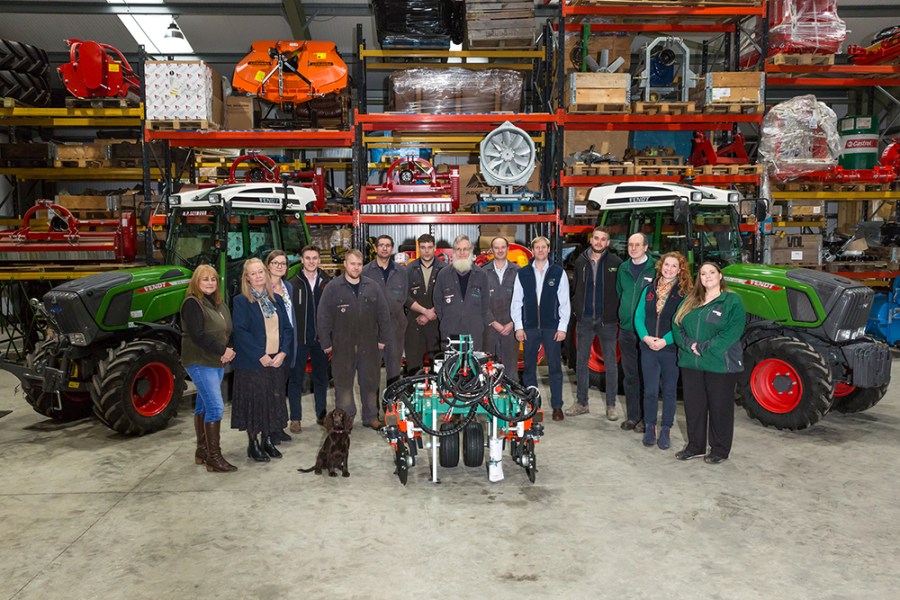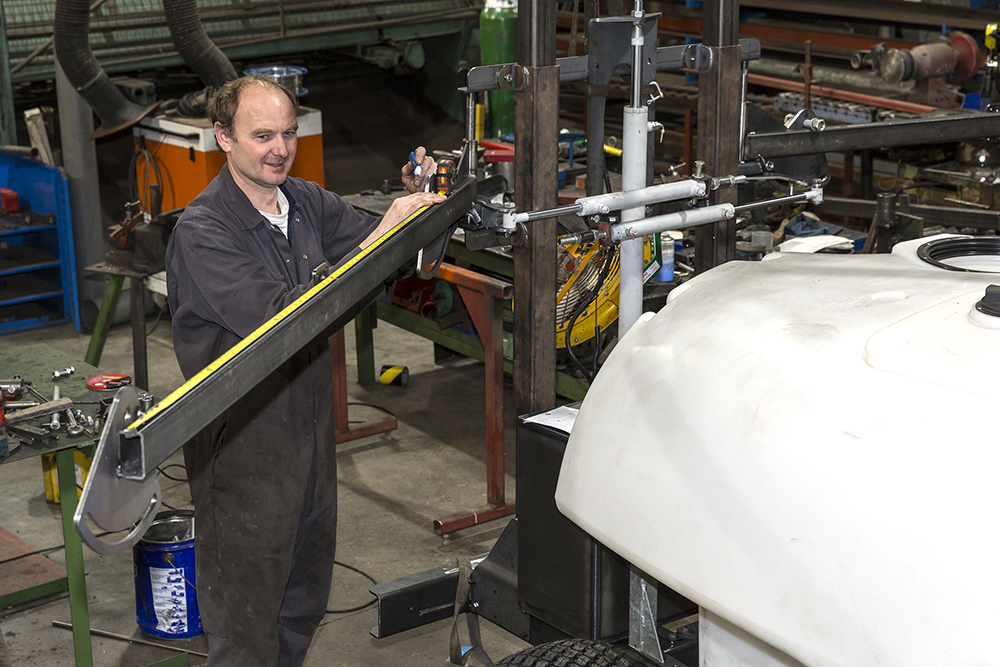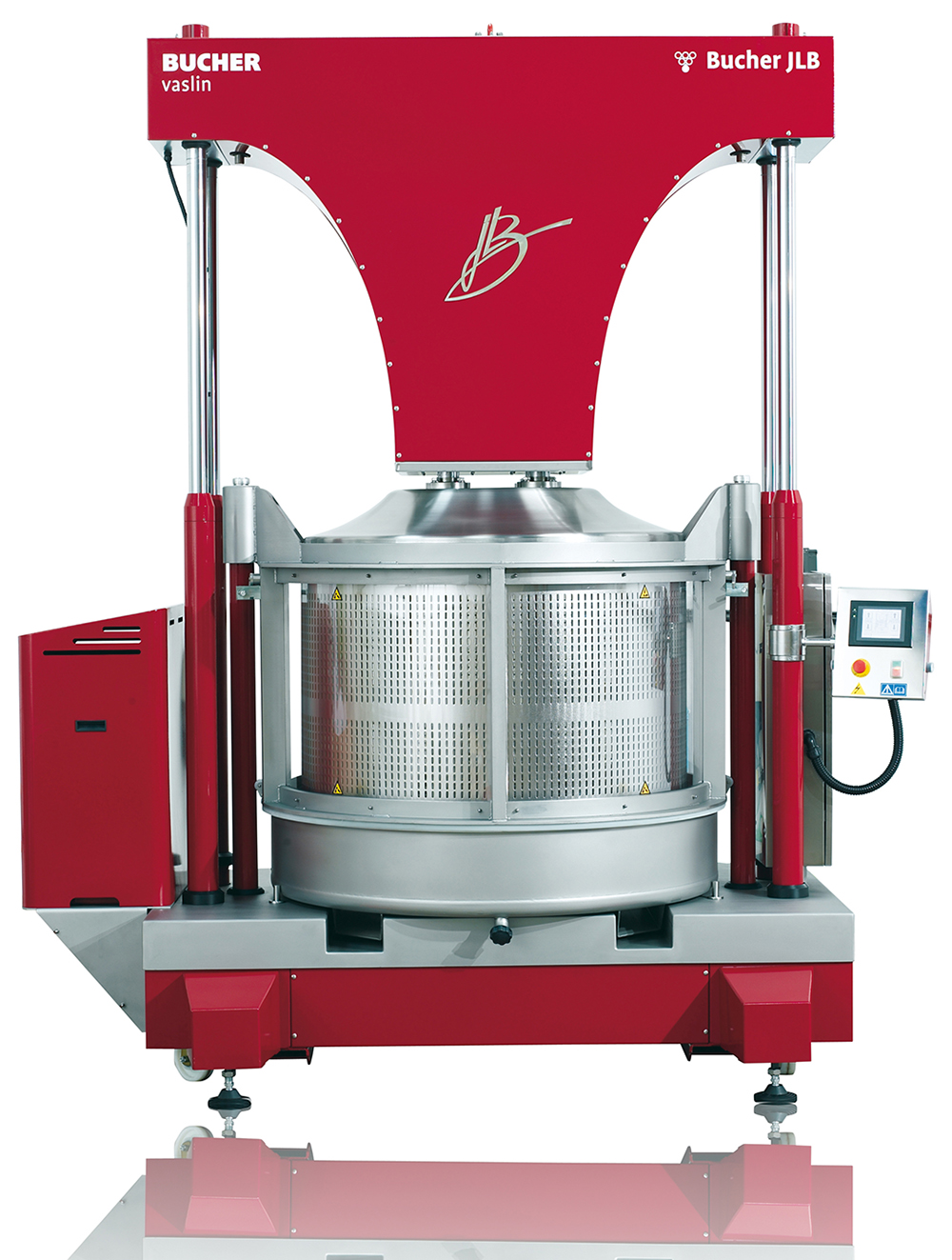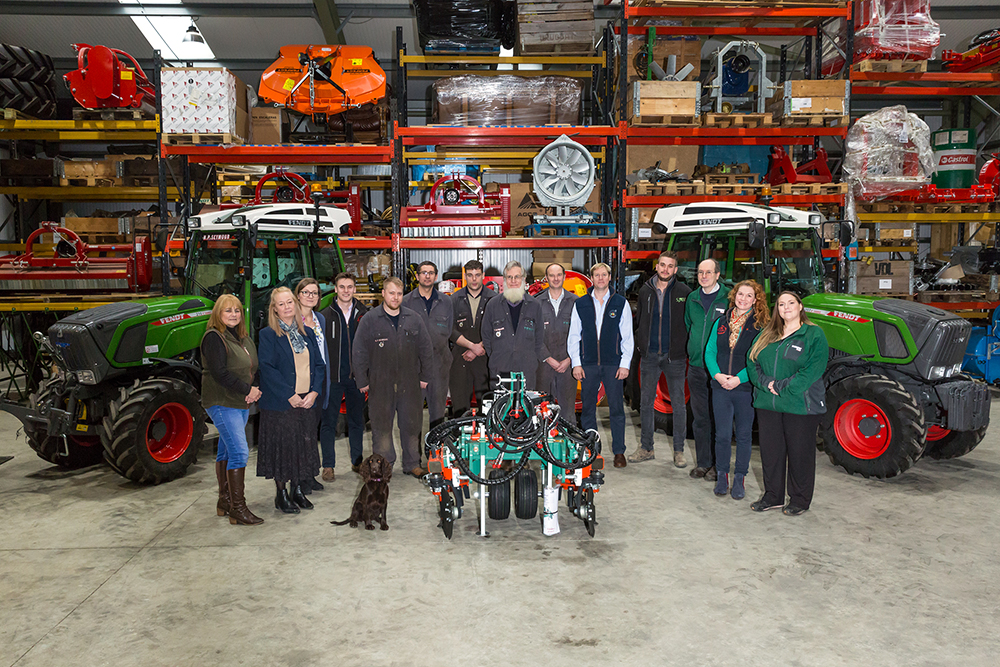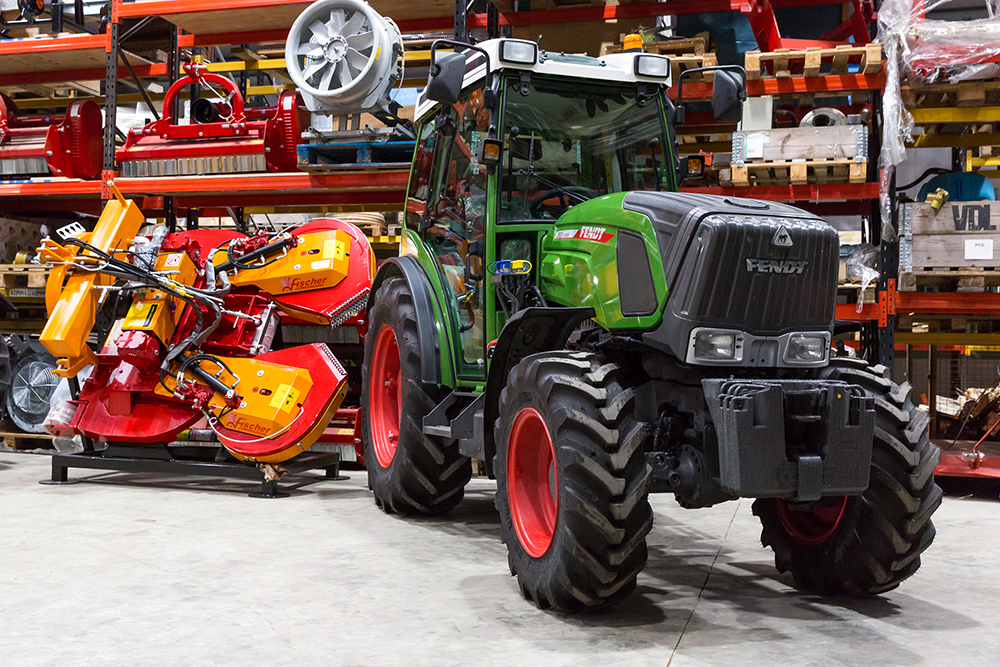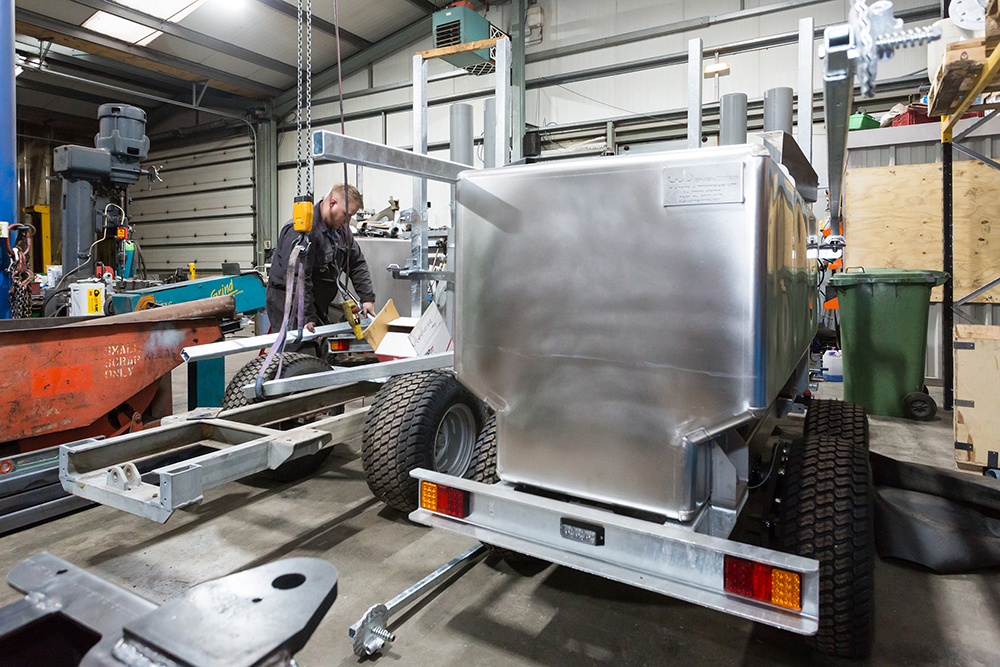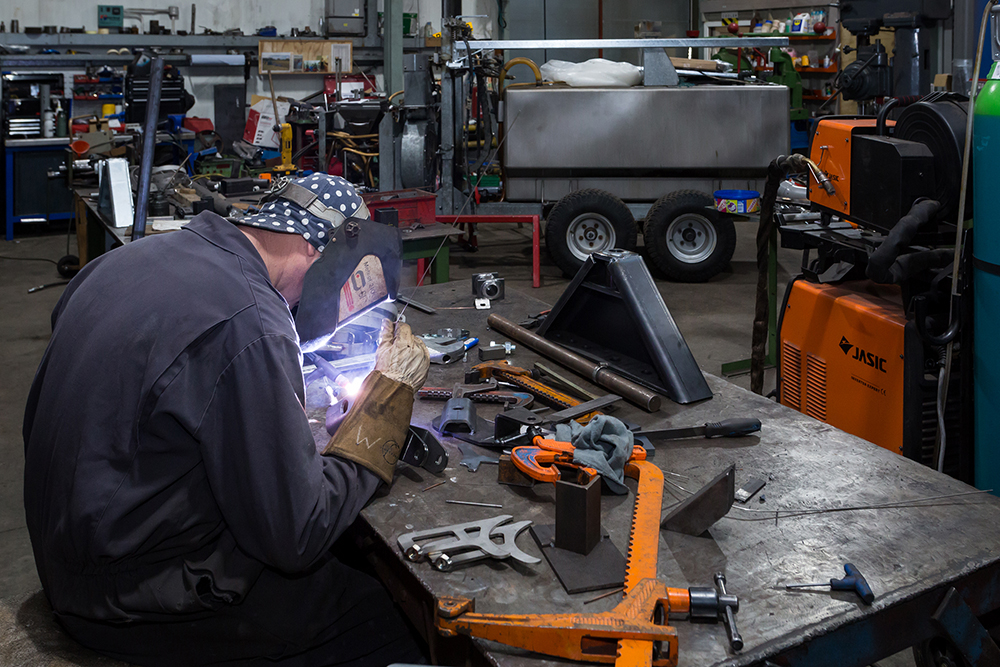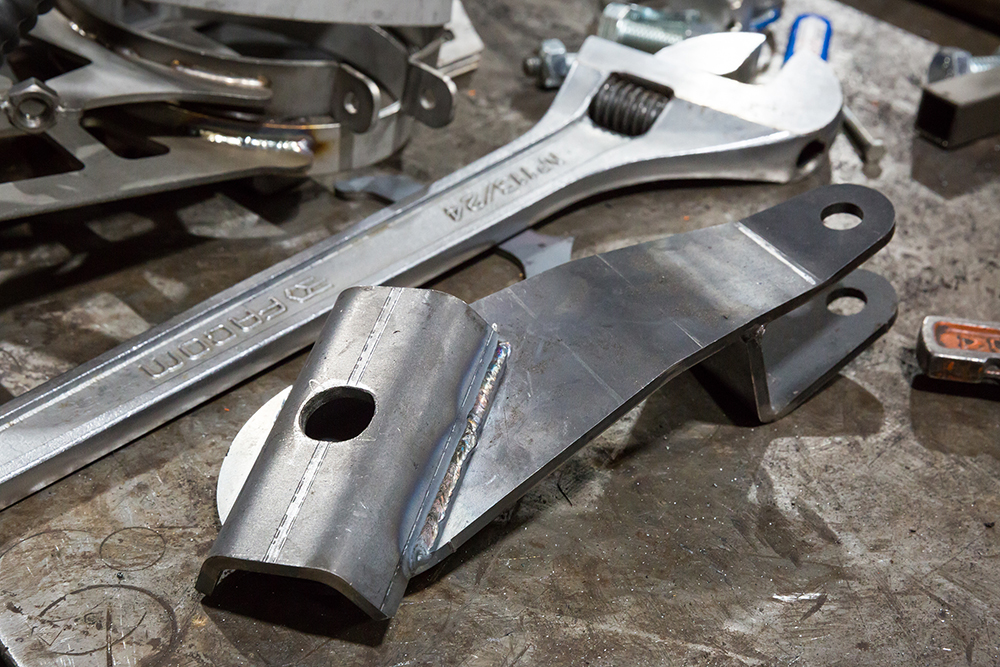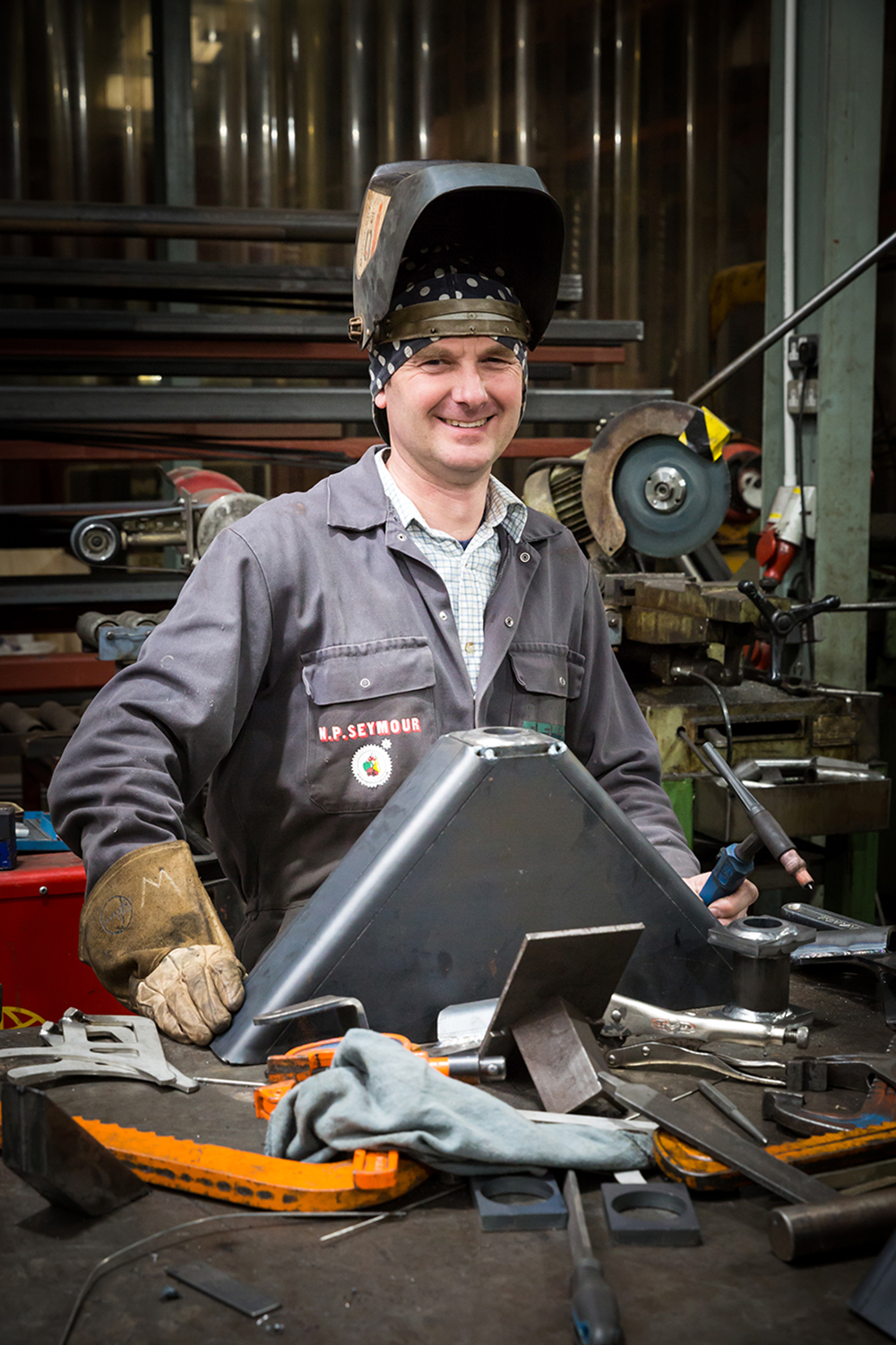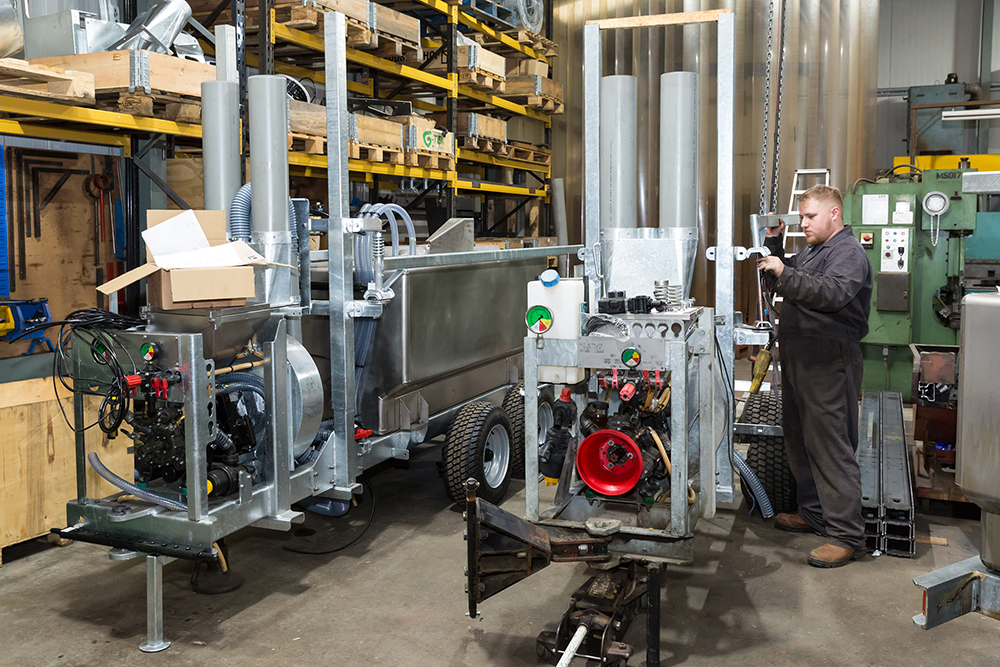As we welcome in a new decade, the country’s leading specialist tractor, vineyard and winery equipment dealership, NP Seymour reviews some of the top trends ahead, from sales and support, to maintenance and servicing.
• www.npseymour.co.uk • 01580 712200 • Claire@npseymour.co.uk
Based in Goudhurst, Kent, NP Seymour’s family-run and friendly team has been supplying quality tractor and machinery brands, exemplary service and engineering knowhow to vineyards and wineries of all sizes across the UK since the 1980s.
Having started his own mobile engineering business in 1974, Nick Seymour was approached by Lamberhurst Vineyard to help rebuild one of its grape presses. Although it was an unusual request for the then fruit and hop machinery specialist, Nick accepted the challenge and this job seemingly paved the way for NP Seymour to become one of the country’s leading vineyard machinery suppliers.
While predominantly focused on machinery and equipment to help improve life in the vineyard, Nick, who has since been joined in business by his daughter Claire Seymour, a team of engineers, sales and office support staff, continues to take an interest in the entire winemaking process.
Several years ago, NP Seymour was appointed as the UK agent for Bucher Vaslin and is today able to supply and service a full range of winery equipment from pneumatic and basket presses, to belt elevators, sorting tables, destemmers, cross-flow filters and maceration tanks.
“Most wineries we work with come to us because they are looking for Bucher Vaslin equipment,” said NP Seymour’s viticulture sales specialist Sam Barnes. “They know that it is a good brand and its famous Inertys press is a good example of this. The Bucher Vaslin cross-flow filter is also an all singing all dancing set up too. There is currently a lot of wine in tanks and the UK industry needs to have the right equipment to be able to deal with that volume of liquid. With a 10-membrane filter, you could easily process 250,000 litres per day.”
For producers interested in sustainability, the cross-flow is both environmentally and economically one of the best options too as there are no wasted sheets, the amount of water which is required is greatly reduced, and it is a much cleaner, faster and efficient process.
“There are a lot of different models to choose from and unlike other options on the market, the Bucher Vaslin range is fully automatic, so you could turn it on and walk away,” said Sam. “For winemakers interested in seeing how the Flavy FX works, we are looking to import a demonstration unit and could potentially organise a series of regional demonstration days with enough willing hosts.”
The Flavy FX cross-flow filter can also be linked to Bucher Vaslin’s newly developed mobile app, allowing the operator to change parameters on their phone which will also send a notification once the process is complete. The app can also be used to manage a full range of winery tasks, from starting and stopping pumps, to controlling presses and elevators.
“We now supply this as standard, so any piece of equipment which has a PLC and can be connected to Wi-Fi can be linked to the system,” said Sam. “Everything can be monitored, set and changed remotely which means you can be doing other things in the winery while it is working. It also allows our technicians to log in to monitor equipment or run diagnostics if needed.”
Over the last 45 years, NP Seymour has carefully collated a range of machinery suitable for Great Britain’s viticultural market. The family run team is currently able to supply and service many well-known brands including Bucher Vaslin, Felco, AgroFrost, Clemens, Fischer, Braun, ERO, Berthoud and Fendt.
Case study:
Small and mighty Danbury Ridge Wine Estate, Essex
When it comes to winemaking in the UK, there is no doubt that quality, not quantity, is always top of the agenda. When given a blank sheet of paper and the task of designing a new winery in Essex, seasoned English winemaker Liam Idzikowski set about ensuring that everything was as high spec as possible and work swiftly began.
“We essentially managed to cram a two-year project into a year,” said Liam, winemaker at Danbury Ridge Wine Estate. “It has been quite a build and there was a big push to get the grape reception area and tank hall ready in time for the 2019 harvest. The infrastructure was all put in place on a tight time scale, and the equipment was only delivered and commissioned in August, but it all went very well.”
Aiming to focus on making the “best wine in England”, production volumes will be intentionally kept at a boutique level and so, alongside a 6-tonne Coquard PAI grape press, Liam has opted to invest in a Bucher Vaslin JLB12 basket press. Capable of taking just 950kg of crushed berries, or 750kg uncrushed, this small but mighty press is ideal for the producer’s still Pinot noir and small volumes of still Chardonnay and sparkling base grapes.
“Having a small press makes perfect sense,” said Liam. “If we identify a special parcel of vines, or if some of the fruit is looking particularly promising, we can use the Bucher. The basket is removable too which means that we can load directly from our sorting table, and because there are no doors, the fruit is not being dragged across the press either.”
When it comes to making red wine, Liam explains that there is no longer a need for an elevator or must pump and the basket press is much easier to clean and operate, compared to a pneumatic press.
“I knew I wanted a basket press, not a pneumatic one,” said Liam. “Looking at the price in terms of £ per kg it actually worked out at a similar cost to other high-end membrane presses on the market. There are still a range of programmes to choose from, the pressing cycles are quite quick, and the great thing is that you can physically see the juice being extracted, so you know if there is any dead time.”
Working with the research and development team at Bucher Vaslin, this year Liam was also able to trial the benefits of crushing whole-cluster fruit. This method allows for more fruit to be added to the press, helps to release the juice and overall increases the yield from around 500 to about 630 litres per tonne, without extracting harsh stem phenolics.
“The other thing I noticed is that the amount of solids are very low, even when we were crushing,” said Liam. “With the sparkling wine, I was extracting the first bit of juice into a settling tank and then would start filling a barrel directly from the press. I then didn’t need to add any SO2, because there was no movement, and was inoculating straight away. They are turning into some very promising wines too.”
Highlighting the intense level of detail which has been put into the winery design, the 12-hectolitre Bucher Vaslin JLB12 basket press has even been custom coloured in anthracite grey.
“Between NP Seymour and Bucher Vaslin, buying and installing the press was very much a team effort,” said Liam. “They delivered on time and when we were looking to do the trial, they sent a little lorry directly from France with just the crusher on board just so that we could have it on time.”
Longer blade life
It is not just Bucher Vaslin taking to modern mobile app technology in a bid to improve the operator’s experience.
With the pruning season now upon us, those out in the vineyard will be able to take advantage of Felco’s new generation of professional electric pruning shears, the Power Blade Series.
Released just a few months ago, the Power Blade range is made up of four different models of electric pruning secateurs including: the 802 and left-handed version 802G, capable of cutting up to 30mm; the 812 for pruning up to 35mm; and the heavy-duty 822 designed for making large, powerful cuts of up to 45mm.
Each model comes with a new carrying system, the Power Pack 882, which has been fitted with Bluetooth connectivity enabling the shears to talk to the operator’s smartphone or tablet. After installing the new Felco app, users can monitor tool performance, such as battery life and the number of cuts made, settings can be changed and key information such as the next required service or warranty status is also displayed.
“The new Power Blade series has also been fitted with Felco’s newly developed XPRO blades,” said Claire Seymour, sales and marketing director at NP Seymour. “Made from a special steel, these have been designed to provide consistent pruning, cleaner cuts, and a longer blade life compared to conventional steel. Many owner-operators have already discovered the benefits of switching over to electronic secateurs and these new models further help pruners to cover more vines in a day.”
Controlling the hoarfrost
Those thinking about the early season’s growth stages will no doubt be hoping to avoid frost. If you have a known issue with frost it is likely that you have already invested in some form of protection equipment.
Working with one of the world’s leading frost protection designers and manufacturers, Agrofrost, NP Seymour offers growers a wide range of machines, including the well-known Frostbuster and FrostGuards, as well as frost alarms, wind machines and burners for wind machines.
Trailed behind a tractor, the Frostbuster combines a powerful PTO-driven fan with a propane burner and by driving through the vineyard during the frost, up to 10-hectares can be protected. By comparison, the FrostGuards are stationary machines. Also equipped with a fan and propane burner, the FrostGuards rotate to cover up to 1-hectare and can be fitted with an auto start system which kicks in when the temperature drops below a programmed temperature.
“Unlike other frost protection systems, our products work not by raising the temperature but by phase transition and controlling the hoarfrost,” said Patrik Stynen, director of Agrofrost. “We all know that hoarfrost is the biggest enemy for the buds, but we found a way to use this for protection. The transformation of vapour into hoarfrost releases a lot of energy, which can then be transferred to its surroundings and in the vineyard this energy is also transferred into the leaves and flowers themselves. Our machines pass a hot air stream every seven to 10 minutes, creating an optimal protection with only a fraction of the energy input that is needed by other systems.”
Alongside manufacturing its frost protection equipment, Agrofrost has been designing, testing and perfecting a revolutionary thermal weed control system. Due to be imported to the UK by NP Seymour around April 2020, the patent-pending Weeds Buster targets propane gas heated hot air under the vine. Capable of working at speeds of around 4km/hour, this system does not disturb the soil, instead blistering weeds. It also kills seeds laying on the soil surface to prevent regrowth and should be used every six weeks.
“Following stunning test results on long grass and weeds, we believe we have found the most efficient non-chemical weed control method,” said Patrik. “There is no flame so no risk of fire and the heat is recirculated to keep the fuel consumption down to just £10 per hectare. The units are small and compact and will be mounted on brackets to work on both the left and right. We have also added a sensor to avoid hitting the vines but because a lot of the hot air is blown to the sides it is very capable of killing the weeds around the trunk which would normally be missed.”
Keeping on top of weeds
Looking ahead, NP Seymour’s viticulture sales specialist, Sam Barnes says that non-chemical weed control will continue to be the key trend in the vineyard machinery world.
“Growers are very focused on finding suitable alternative methods because there is still so much uncertainty surrounding the future of glyphosate and other herbicides,” said Sam. “Everyone is determined to find a successful solution before products potentially disappear from the shelves. However, growers do need to be aware that timing is absolutely key to keep on top of weeds effectively. If you underestimate this and neglect to use the equipment for three weeks in the middle of summer, you will quickly end up with out of control weeds and it will be too late to do anything about them.”
As well as using the mechanical weed control equipment at the right time, growers and operators should get to know exactly how their under-vine set up works. Modern systems can be incredibly sophisticated and to use the tools efficiently and effectively, it may be necessary to make several adjustments. It is also essential to consider the soil type and weather conditions.
“Mechanical weeders are not a one-size-fits-all product,” said Sam. “Even in your own vineyard, just because the settings worked perfectly the first time, when there was a lot of weed coverage, it does not mean that the same configuration will work when there is open soil. We are happy to help operators who are willing to learn and who want to ensure that they are getting the best performance from their machines.”
When it comes to finding the right machine, the manufacturers and models greatly depend too on what the grower is trying to achieve. For organic growers, the system on offer from Clemens is NP Seymour’s recommended option.
“Mechanical weed control is not just about ticking a box and claiming you are more sustainable, if you are then going to have to resort back to using a bit of round-up because it is not effective enough,” said Sam. “The Clemens is really robust and comprehensive. It is one of the more premium options on the market but it suits those who need to be able to do a complete process in one pass. It does a more thorough job and the effects tend to last longer; it is a fantastic piece of equipment.”
For those who have cellar door facilities and need to ensure that the vineyard and surrounding estate is looking immaculate at all times, a mower is also an essential item. This will not kill weeds in the same way, but it is an effective way to keep growth under control. While the Perfect flail mowers are known for being heavy-duty and reliable, the compact range of Fischer mowers also supplied by NP Seymour benefit from an electro-hydraulic sensing system making them ideal for growers who need to work around both young and well-established vines.
“There are also growers who are just looking to reduce their chemical use, perhaps using round-up, or Shark, at the start and end of the season,” said Sam. “For these growers, the Braun Rollhacke finger weeder is the best option as it can be attached to the tractor and used every time it is going through the vines. It effectively loosens the soil, disturbing and lifting the weeds.”
Case study:
England’s tidiest estate Gusbourne, Kent and Sussex
In the August 2019 edition of Vineyard Magazine, editor Victoria Rose visited Gusbourne, in Appledore, Kent. By far one of the UK’s most well-kept estates, not a blade of grass was out of place and there were certainly no weeds in sight.
“It is not just about keeping it tidy, it is also about keeping the air flowing through the vineyard,” said Gusbourne’s vineyard manager Jon Pollard. “We have two pieces of Braun equipment to treat the weeds under the vine. The side hoe, which is a swinging blade, is used very infrequently, but our Rollhackes are put through our vineyards with the mowers around 12 times per year. We now only do one application of Shark per year, but that is actually to remove the buds on the trunk, not specifically for weed management.”
The Rollhacke does not break the soil, but effectively moves it making it more friable, light and fluffy. This creates an inhospitable environment for any weeds looking to establish themselves. Any stubborn perennial weeds such as nettles, thistles and willow herb, are then spot treated and dug up by Gusbourne’s vineyard workers as and when they encounter them.
“We have successfully used the Rollhackes on our Kent vineyards, which are on Wealden Clay with Tunbridge Wells sand for over three years and we have just started using them on the Sussex land, which is flinty, clay loam over chalk,” said Jon. “As the Rollhacke works under its own inertia, it is not as abrasive on the metal work, but we are still waiting to see what the wear level will be like with the flint.”
For those worried that mechanical weed control will increase compaction or fuel consumption, Jon explains that the beauty of the Braun system is the ability to use it alongside other tractor mounted implements.
“If we didn’t have the Rollhacke we would still be mowing the alleyways eight times per year and we would then be doing four passes of herbicide, so our overall tractor movements would be no different,” said Jon. “When it comes to the soil structure, too, you are only turning the top four or five inches, not going down where the vine roots are and so I feel there are no issues there with soil biology.”
While there are lots of mechanical under-vine cultivators on the market, Jon explains that Braun has always been a reliable brand and having already invested in the mid-mounted sub frame, it made common sense to use the Rollhackes.
“We have always had a good relationship Braun and when NP Seymour started importing the Rollhackes which were very popular in Germany, it seemed like the obvious option,” said Jon. “We know the equipment is well made and the service is very good too. We were going to do a trial, but the Rollhacke did so well in the first plot we decided to use it across all sites. We have had above average yields in all the years since we have started using them and it has fitted in very well with all the other practices in the vineyard.”
To work across the 61 hectares of vines in Kent, Gusbourne has two tractors set up with left and right Rollhackes, enabling them to do both sides in one pass. There is just one looking after the 32-ha in Sussex.
“At certain times of the year, we will have the Rollhackes going all the time,” said Jon. “It is one of those jobs which, if it is not too wet, you can get on with in between other time sensitive jobs like spraying. A small amount of moisture on the topsoil does help to get it moving and early in the season when the ground is dry and more compact you do have to take it quite slowly to make sure you don’t damage the equipment. Having said that, they are robust, low maintenance and we have not yet needed to replace the blades.”
Cost effective canopy management
Alongside mechanical weed control equipment, Sam also believes that leaf strippers will become increasingly popular in 2020. Available from NP Seymour, the ERO leaf stripper has two rotating rollers and a fan which plucks leaves gently from the vines.
“Unlike an air blast system, the ‘suck and pluck’ can be used at any time from flowering to harvest,” said Sam. “This is more adaptable and while it will only remove the leaves it can get hold of, it doesn’t leave any debris in the canopy, which avoids disease risk.”
This can be configured in a single or double-sided set up, capable of doing 0.5ha or 1ha per hour respectively. The single-sided option can also rotate so that it is possible to just defoliate the East-facing side of the vines.
“On average it costs £350 per acre for a team of labourers to leaf strip one side of the vines by hand,” said Sam. “It is not difficult to see why the ERO leaf strippers will soon become commonplace in UK vineyards.”
Canopy management is, however, fruitless unless you have a good sprayer. Having been approached by French manufacture Berthoud over 25 years ago, NP Seymour has supplied the popular Win’Air sprayer to a number of large vineyards across the country.
As well as a range of tank sizes, which come with a specially shaped base to leave the minimum amount of chemical in the tank, there are also flexible spraying options designed to optimise application. The Win’Air benefits from Berthoud’s AB MOST drop legs which are available double sided for multi-row spraying. Drop legs can be configured with three or four diffusers with Albuz nozzles, providing efficient application rates needed in the UK.
“The Win’Air are nice, compact and reliable units,” said Sam. “Our team can also carry out National Sprayer Testing Scheme tests for any make or model of sprayer. The scheme might not be obligatory for the viticulture industry, but it should be. It is best practice training, not just to tick a box, but also because testing every year is important for the sprayers’ wellbeing.”
The best engineers
While the main offices, parts department and workshops might be based in Kent, NP Seymour operate nationally and as well as selling essential equipment to growers up and down the country, the team of skilled engineers is also able to provide service and maintenance support.
“We work with vineyards nationally and if there is a cluster of customers further afield who need services, we would organise for one of our technicians to go away for a few days,” said Claire. “We can, and do, also work with other dealers across the country, so even if there is an emergency we can provide over the phone support. We pride ourselves on having 10,000 lines of stock parts on the shelf ready to go and the best engineers because that is where our reputation and business has stemmed from. They are all regularly trained and up-to-date with the latest manufacturer requirements.”
Over the last year, due to an increase in sales of specialist machines, the servicing and maintenance department has been expanded to five engineers, with another due to start in the fabrication department in early 2020.
“Our fabrication department play an essential role as quite often we need to manufacture brackets so that specialist equipment will fit onto certain brand tractors,” said Claire. “Most vineyard equipment manufacturers design products to fit on the Fendt tractors, which we supply, but quite a few customers have other tractors and some implements don’t fit properly. Dad has always been keen to ensure customers get exactly what they need and so over the years has designed and developed systems to get around these issues.”
A perfect fit
Through word of mouth recommendations from existing vineyard owners and managers, many growers contact NP Seymour having already decided that they want a Fendt vineyard tractor.
Specifically designed for the viticultural market, the Fendt Vario range includes the 1.4-metre-wide model F, which is suitable for vineyards planted on 2.2 metre spacing or wider, and the model V, which is suitable for narrower plantings as it can be reduced to as little as 1.1 metre wide.
“2019 was a very steady year for sales and with new vines going in the ground all the time, we have been taking on various new customers,” said Sam. “I have a Fendt Vario 210v for my specialist mechanical contracting business because there is no other tractor which can match the Fendt in terms of quality and more importantly, it is the only brand where you can buy tractor mounted vineyard implements straight from the catalogue knowing they will fit perfectly.”
Each model can be tailored to suit operator requirements in terms of horsepower, air conditioning and other optional extras.
With a new growing season now upon us, the entire team at NP Seymour is looking forward to a busy 2020 and is on hand to help new and established producers across the UK with all their viticultural machinery needs from sales and support to maintenance and servicing.

